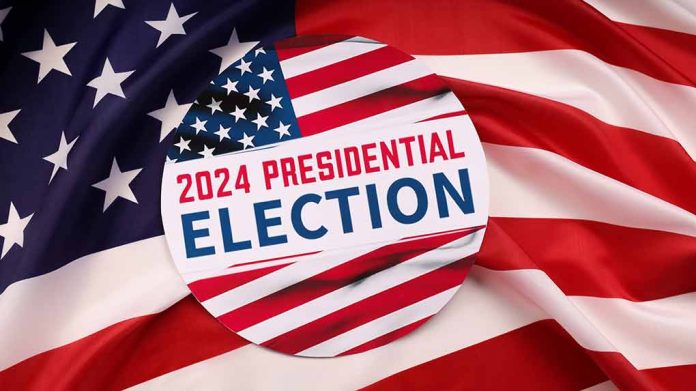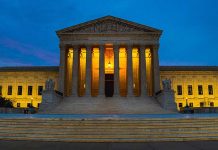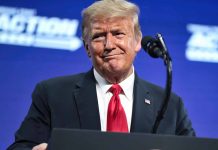
Pennsylvania’s election integrity debate intensifies as legal battles unfold and voter suppression concerns rise.
At a Glance
- Republican National Committee (RNC) launches swing state initiative to mobilize election integrity watchdogs
- Trump supporter arrested in Pennsylvania for encouraging voters to remain at polling sites
- RNC and Trump campaign secure legal victory extending early mail voting in Bucks County
- Efforts focus on addressing voter suppression, promoting voter ID, and ensuring only American citizens can vote
- 135 lawsuits filed nationwide by RNC and Trump campaign to ensure fair and secure elections
RNC’s Nationwide Election Integrity Initiative
The Republican National Committee (RNC) has launched a comprehensive swing state initiative aimed at safeguarding election integrity for the upcoming elections. This ambitious plan involves mobilizing a vast network of polling place monitors, poll workers, and attorneys to serve as “election integrity” watch dogs across the country.
The RNC’s goal is to recruit an impressive 100,000 volunteers who will be deployed to observe the election process meticulously. In addition to on-the-ground monitoring, the initiative includes the creation of hotlines for reporting issues and the readiness to take legal action if deemed necessary. To further bolster their efforts, the RNC plans to place election integrity directors in 15 states, with a particular focus on battleground states.
Pennsylvania: A Focal Point in the Election Integrity Debate
Pennsylvania has emerged as a key battleground in the fight for election integrity, with recent events highlighting the tensions surrounding the issue. The arrest of Val Biancaniello, a Trump supporter who encouraged voters to remain at polling sites, has sparked concerns about potential voter intimidation and the fine line between poll watching and voter suppression.
“What we need to ensure is integrity in our electoral process” – RNC Co-chair Lara Trump
The situation in Pennsylvania took another turn when the RNC and Trump’s campaign achieved a significant legal victory. A judge sided with their argument, extending the deadline for early mail voting in Bucks County until November 1 at 5 pm. This decision is seen as part of a broader strategy to fortify election integrity and address concerns about voter access and potential suppression.
Nationwide Legal Battles and Priorities
The efforts in Pennsylvania are just one part of a larger, nationwide strategy. The RNC and Trump campaign have engaged in a staggering 135 lawsuits across the country, all aimed at ensuring fair and secure elections. Their key priorities include allowing only American citizens to vote, implementing robust voter ID requirements, cleaning voter rolls, and ensuring proper protections for mail-in ballots.
“I can tell you, yes, we will accept the results of this election if we feel that it is free, fair and transparent” – Lara Trump
These legal and grassroots efforts come in the wake of persistent claims of election fraud in the 2020 election, despite no evidence of widespread irregularities. The RNC’s initiatives, including their “Protect Your Vote” tour visiting battleground states like Pennsylvania, North Carolina, and Georgia, reflect a determined push to address perceived vulnerabilities in the electoral system.
Challenges and Controversies
While proponents argue these measures are necessary to ensure election integrity, critics warn of potential voter intimidation and the risk of creating confusion in the electoral process. The coordinated strategy to use poll watchers to challenge election results has raised concerns among some election officials and voting rights advocates.
As the 2024 election approaches, the debate over election integrity in Pennsylvania and across the nation continues to intensify. With both sides deeply entrenched in their positions, the coming months are likely to see further legal battles and grassroots initiatives aimed at shaping the electoral landscape. The outcome of these efforts will undoubtedly play a crucial role in determining public trust in the democratic process and the integrity of future elections.

















